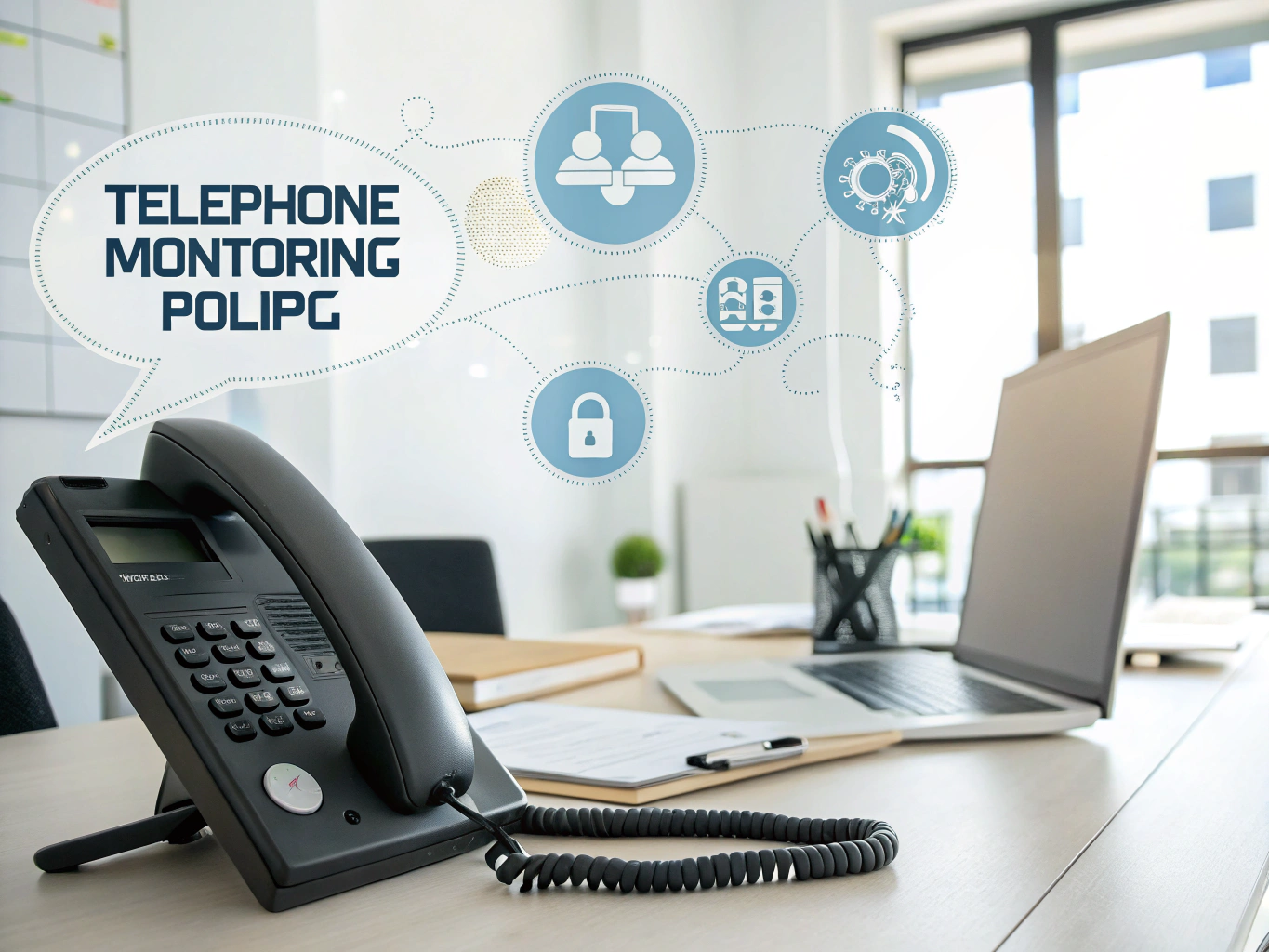Definition
A Telephone Monitoring Policy is a structured set of guidelines that governs the practice of recording and assessing telephone conversations within an organization. This policy aims to balance the need for quality control, compliance, and security with respect for employee privacy and ethical considerations.
Key Components
When crafting a Telephone Monitoring Policy, there are several essential elements to consider. Each of these components plays a critical role in ensuring that the policy is effective, fair, and compliant with regulations.
- Consent: It’s vital to obtain employee consent for monitoring calls. You might inform team members at the onset of their employment that their calls may be recorded for quality assurance. A simple acknowledgment form can help clarify this upfront.
- Purpose of Monitoring: Clearly outline the reasons for monitoring. Whether it’s for training new hires, enhancing customer service, or ensuring compliance with legal standards, being transparent about the “why” can foster acceptance among employees.
- Data Protection: All recorded conversations should be treated confidentially. For instance, you might implement strict access controls, ensuring that only designated personnel can listen to recordings, thereby safeguarding sensitive information.
- Monitoring Procedures: Establish clear procedures for how monitoring will occur. For example, you could specify that calls will be randomly selected for quality checks, thereby ensuring fairness and transparency in the process.
- Employee Rights: Make it known that employees have the right to access recordings they are a part of. This transparency can build trust and ensure that employees feel respected in their workplace.
- Training and Awareness: Regular training sessions can help employees understand the policy and its implications fully. Moreover, periodic reminders about the policy can reinforce its importance and encourage compliance.
Importance in the Workplace
A well-defined Telephone Monitoring Policy is crucial for several reasons. Imagine a customer service team handling complaints. If a call is recorded, it can be reviewed to identify areas for improvement, ensuring that employees receive constructive feedback. On the flip side, it can also protect the organization in the event of a dispute by providing a clear record of communication.
Furthermore, this policy can enhance security by monitoring for fraudulent behavior or compliance breaches. For example, if an employee is found discussing sensitive company information over the phone, the organization can take immediate action to mitigate risks.
Best Practices
Implementing an effective Telephone Monitoring Policy requires thoughtful consideration and ongoing management. Here are some best practices to help guide you:
- Communicate Transparently: Regularly inform employees about the monitoring policy and its purposes. Consider hosting an open Q&A session where employees can voice concerns or seek clarification.
- Regularly Review and Update the Policy: As technology and legal standards evolve, so should your policy. Set a regular schedule to review the policy—ideally annually—to ensure it remains relevant and compliant.
- Document Everything: Keep detailed records of monitored calls and the outcomes of any reviews. This transparency can protect your organization and help you track the effectiveness of the monitoring process.
- Foster a Positive Culture: Encourage a culture that views monitoring as a tool for growth rather than a surveillance tactic. Share success stories where monitoring led to improved customer interactions or employee performance.
- Provide Training: Ensure that all employees, especially managers, receive training on how to use monitoring data constructively. This training should cover how to provide feedback based on monitored calls, keeping the conversation positive and focused on improvement.
Legal Considerations
When implementing a Telephone Monitoring Policy, it’s essential to be aware of relevant legal frameworks that govern privacy and data protection. Laws can vary significantly by country and state, so consulting with a legal expert is wise. For instance, some jurisdictions require that all parties on a call be informed that the conversation is being recorded. Failure to adhere to these legal requirements can result in severe penalties for the organization.
Additionally, familiarize yourself with data protection regulations like GDPR if you operate in or with clients from the EU. This understanding will help you structure your policy in a way that respects employee privacy while protecting your business interests.
Conclusion
Understanding and implementing a Telephone Monitoring Policy is not just about compliance; it’s about creating a fair and efficient workplace. By clearly outlining the guidelines and ensuring everyone is on the same page, you can foster an environment of trust and transparency. Remember, a well-communicated policy can help mitigate risks while enhancing customer satisfaction and employee performance. So take the time to craft a thoughtful policy—your organization will thank you for it!




